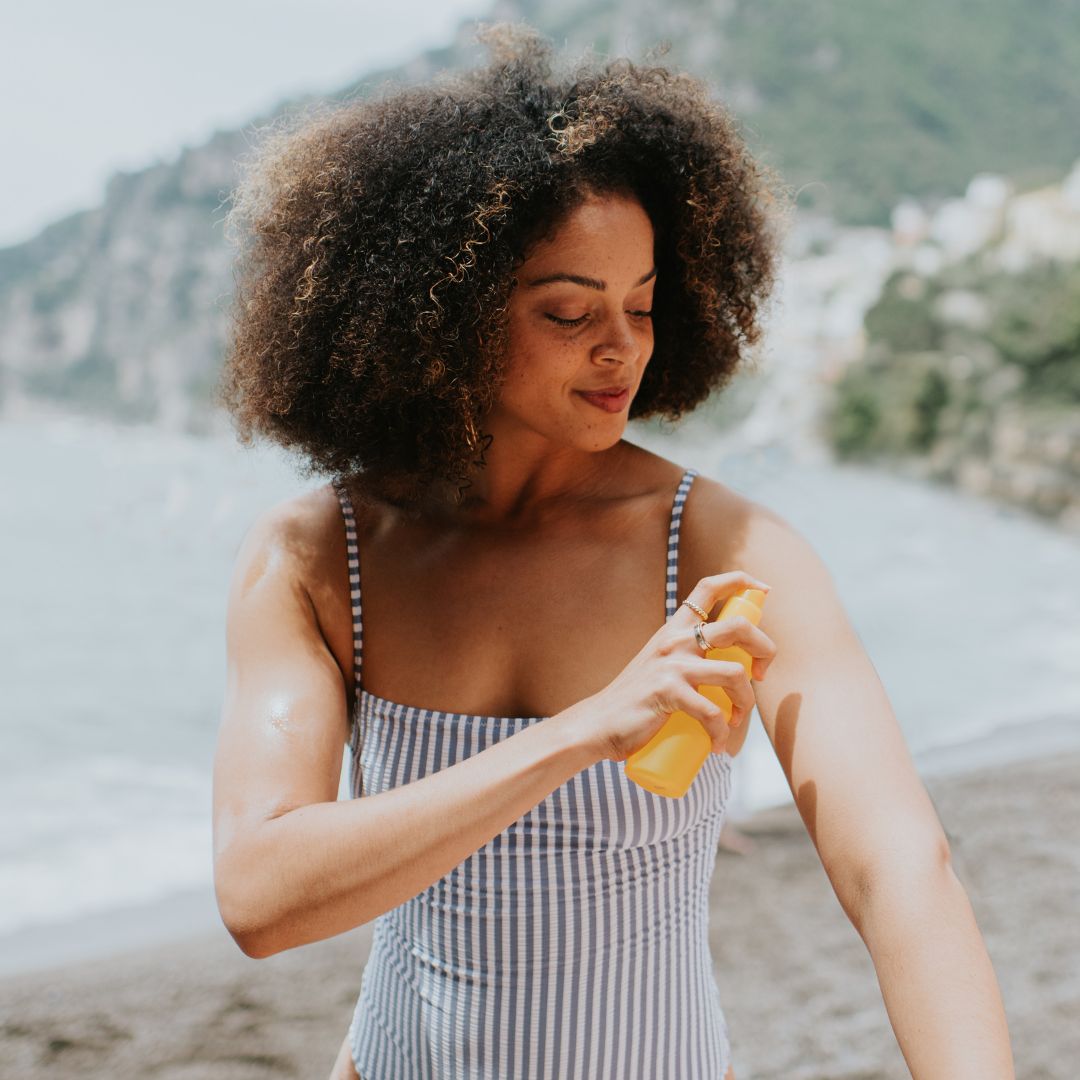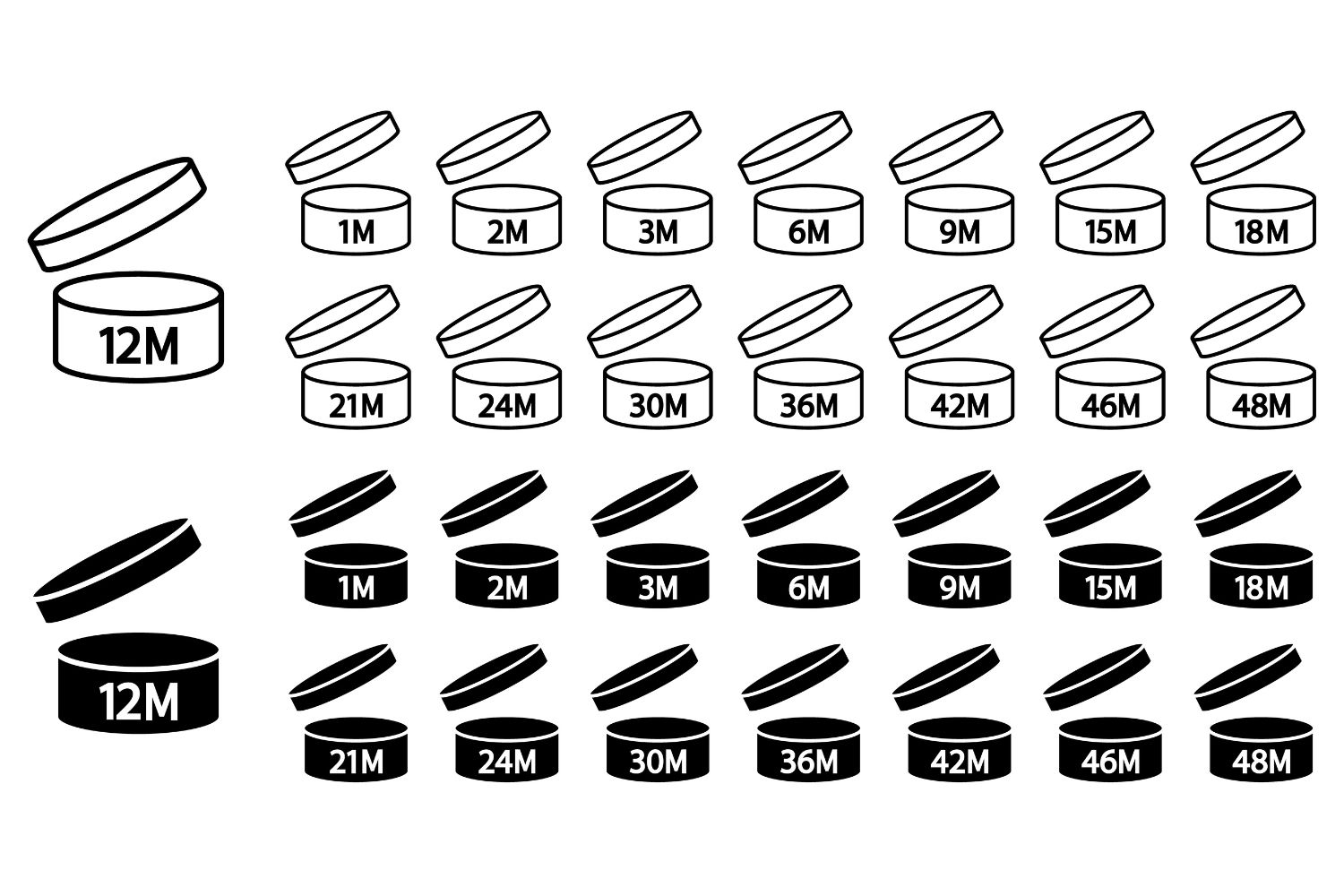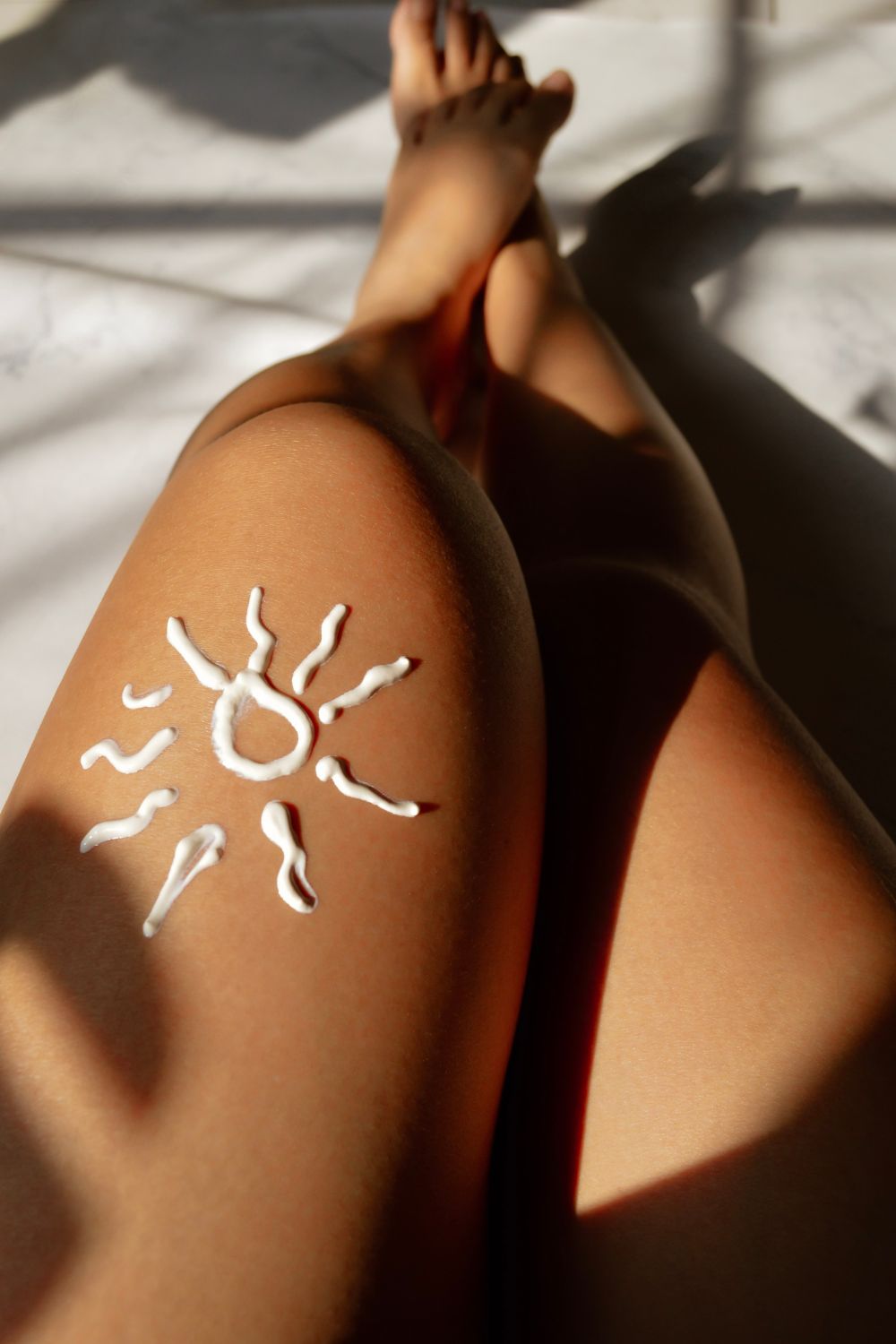
By now, we are all aware of just how important wearing sun protection is - whether you prefer a sun cream, a facial sunscreen or an SPF moisturiser - protecting ourselves from the sun's rays should be an integral part of your skincare routine. It helps prevent photodamage from ageing to preventing us developing skin cancer, sun cream is a non-negotiable. But for those new to the world of sunscreen (or just for anybody who needs a reminder!), there can be lots to learn and remember about how best to use the stuff.
That's why I decided to reach out to the experts to get some clear answers once and for all to the most commonly-asked SPF questions. Wondering if your suncream has an expiry date? I've got you covered. Not sure if you should wear a different factor SPF on your face and body? Keep reading...
Does SPF expire?
In short, yes – and taking notice of it is extremely advisable. Dr Catriona Maybury, Consultant Dermatologist and Dermatica Medical Director, explains: "Expired sunscreen is much less effective at protecting your skin from harmful UV rays, so to avoid sunburn or skin damage, check your sunscreen is in date before you use it."
Wondering how to tell when yours is past its best? "Most will have the expiration date printed on the packaging, but if not, a good rule of thumb is to replace it within three years from when you purchased it, or one year from when you opened it."
On most beauty packaging you'll see a little symbol of a pot with a number within it, that indicates the number of months after opening you can the product for.

Does SPF stop tanning?
Despite knowing about the damaging effects of the sun's rays, we know that a lot of people still like the look of a tan. Whilst we suggest doing it safely with the help of the best fake tan, we know that some people will still lie out in the sun on holiday. You may be concerned that slathering on the sun cream will stop you from developing a natural glow and the truth is yes, if worn right, SPF can impact your natural tanning process. "Sunscreen works by blocking UV rays, so less harmful radiation reaches your skin. This effectively reduces how much you tan or burn," says Dr Catriona.
"However, no sunscreen can block out 100% of UV rays, so some tanning can still happen, especially if you’re outdoors for long periods of time or when the sun is at its hottest." So don't let that stop you from wearing it. Why not invest in a tanning water that won't stain the sheets or an instant tan that will give you an immediate glow?
Does SPF block vitamin D?
"Avoiding the sun and wearing an SPF daily may reduce your skin’s production of vitamin D," says Dr Catriona.
Many of us are deficient in vitamin D, but Dr Catriona says that "the best way to replace levels is by taking vitamin D supplements, not by sunbathing."

Can SPF cause breakouts on the face? How can you prevent this?
SPF has developed a bit of a bad rap for clogging pores and causing spots. In fact, that is a common reason why some people choose to forgo it altogether. "Acne is perhaps one of the biggest issues and I see so many of my patients skipping SPF when they first come to me because of fears it will make them break out more," notes Dr Sam Bunting, Dermatologist and founder of Dr Sam's.
However, these days it's all about finding the right formula for you, that'll prevent this from being an issue. Which is where the best SPFs for acne-prone skin come in. "Non-clogging or non-comedogenic SPF is now readily available. These can be either chemical, physical or a hybrid - the vital thing is to find one you enjoy using, so it’s easy to build a daily habit that becomes automatic."
"Your best bet is to find a lightweight, oil-free formulation with calming, soothing ingredients like centella asiatica," adds Dr Catriona. "If your skin is particularly sensitive, you may want to try a mineral-only sunscreen formulated with zinc or titanium."
Remember too that sunscreen is essential in helping your skin recover from old spots: "It protects against post-inflammatory hyperpigmentation, those pesky dark marks that spots leave behind," notes Dr Sam.
Does SPF prevent wrinkles and premature ageing?
In a word, absolutely yes. OK, that was two, but I'm passionate about this one.
"When it comes to the visible signs of skin ageing (wrinkles, sagging, brown spots, uneven texture and broken capillaries) a huge 80% of that damage is caused by UV exposure," explains Dr Sam. "Wearing daily sunscreen is now proven to reduce the signs of ageing so it’s a pivotal tool when building an effective skincare routine."
Dr Sam also reminds us that it's important to remember the distinction between the two types of UV rays: "UVB rays are responsible for sunburn whilst UVA rays lead to skin ageing."
She continues: "We all know to slather ourselves in sun cream when we’re on a relaxing beach holiday in order not to burn. But when it comes to ageing prevention, we need to be conscious of the fact that UVA rays are present all-year round."
So if you want your skin to remain healthy as well as looking fresh and youthful, reach for the SPF all-year round.
Should you use a different SPF on the face and body? If so, what factor on each?
"The main reason to wear a different sunscreen on your body is because you only have around 30–50 ml in a typical facial sunscreen, so you’ll use it up in one go," says Dr Catriona.
It is usually best to pick up formulas specifically for face and body, particularly if you're worried about breakouts or oily skin. Facial sunscreens are specifically designed for the more delicate area of skin on your face, while your body can tolerate heavier formulas on the whole.
In terms of which factor you need, she says: "Always SPF30 or higher; make sure it’s broad spectrum and protects you from both UVA and UVB rays."
Dr Sam advises always going above SPF 30 on both, but preferably a factor 50: "Remember that SPF 30 blocks approximately 96.8% of UVB rays and SPF 50 blocks 98%. That might seem like a minuscule difference on the surface but it equates to 50% more UVB exposure to your skin if you choose the lower SPF factor - over months, years and decades that additional transmitted UV matters. My advice is to always go high!"

How can you protect your scalp?
We are often so diligent with our face and bodies under the sun, but what about the scalp and hair? The skin on your head is just as important, and particularly in hotter climates, needs to be tended to.
"Wear a hat as much as possible, avoid direct sunlight in the middle of the day and try a spray SPF to cover the scalp too," advises Dr Catriona. "The skin on your scalp is just as sensitive as the skin on your face. It also burns quickly, and is directly exposed to the sun’s harmful rays."
Learn more about how to keep your scalp and hair safe during summer here.
Our SPF picks
From facial SPFs that feel featherlight to body buys that'll protect your limbs, these are our current faves.
Glossier's Invisible Shield is now lighter and comes in a higher SPF.
If you're going away this summer, take these handy minis to ensure excellent protection.
One of our favourite sunscreens for children - a brand we wholeheartedly trust.
Sun care can be expensive, but Hello Sunday has shown us that good protection doesn't have to cost the earth and can still look pretty.







